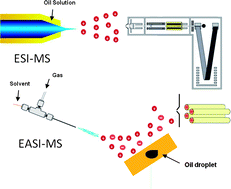Typification and quality control of the Andiroba (Carapa guianensis) oil via mass spectrometry fingerprinting
Abstract
The oil from the seeds of the “Andiroba” tree, which is found throughout most tropical America, contains high levels of unsaturated triacylglycerols (TAG), which makes it attractive to the cosmetics industry. A significant amount of limonoids also confers to this Amazonian oil several pharmaceutical and medical properties. In addition, the oil is also a potential feedstock for biodiesel production, and its many uses have intensified its extractive exploitation in recent years. Herein we report on the characterization of the TAG, free fatty acids (FFA) and limonoid profiles of the Andiroba oil via mass spectrometry (MS) fingerprinting using direct electrospray ionization mass spectrometry (ESI-MS). An ambient desorption/ionization technique known as easy ambient sonic-spray ionization (EASI-MS) was also evaluated with similar results. ESI-MS was performed either for a methanolic solution of a few microliters of the fresh oil or from a simple aqueous extract whereas EASI-MS was applied directly to a droplet of the oil resting on a paper surface. The efficacy of these MS fingerprinting techniques requiring no pre-separation and no or very simple sample preparation protocols was investigated and compared for the typification and quality of this valuable Amazonian oil.


 Please wait while we load your content...
Please wait while we load your content...